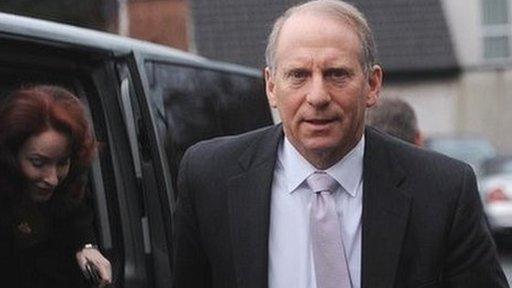Renewed NI talks on flags, parading and the past at Stormont
- Published
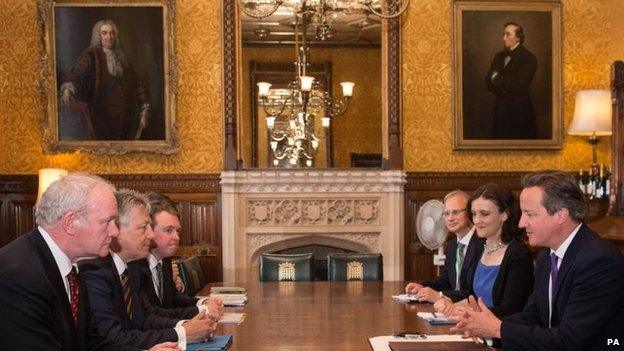
Northern Ireland's first and deputy first ministers met David Cameron at the House of Commons
Northern Ireland's main political parties have held further talks on how to resolve contentious issues.
The talks on parades, flags and the legacy of the past took place at Stormont and will resume on Thursday.
In London, Sinn Féin has held its first discussions with Prime Minister David Cameron.
Mr Cameron has also been discussing Northern Ireland's economy with its first and deputy first ministers, Peter Robinson and Martin McGuinness.
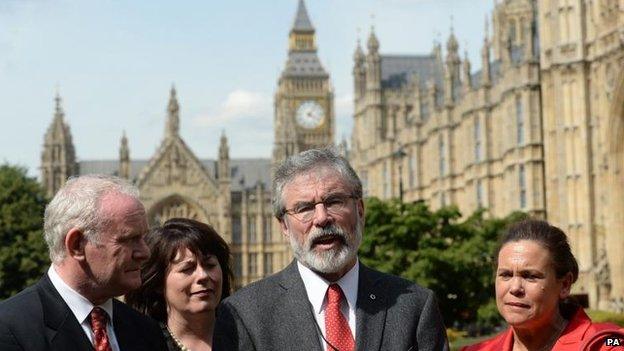
A Sinn Fein delegation met Prime Minister David Cameron at Westminster
The Stormont talks come six months after the last major push to resolve the outstanding issues - chaired by former US diplomat Richard Haass and Harvard professor Meghan O'Sullivan - ended without agreement.
On Wednesday, the Ulster Unionist negotiating team suggested the party negotiators should discuss individual parading issues, like the controversial Orange Order parade past the Ardoyne shops in north Belfast.
The UUP's Tom Elliott said other parties had not agreed to the proposal.
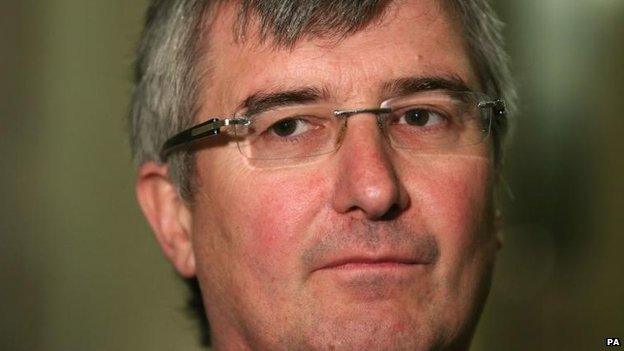
Ulster Unionist MLA Tom Elliott has been taking part in the Stormont talks
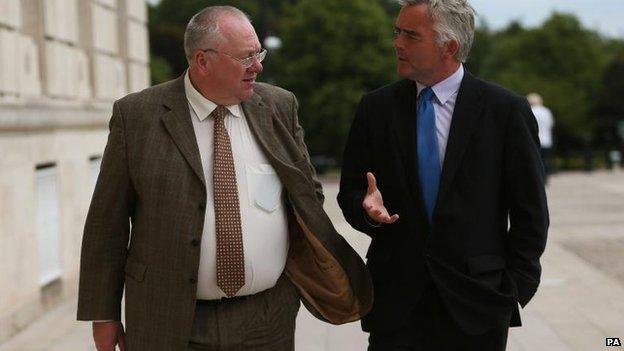
Senior Orangeman Mervyn Gibson and MLA Jonathan Bell are representing the DUP at the talks
SDLP leader Alasdair McDonnell, on his way in to Wednesday's meeting, said the British and Irish governments should also be there, as the parties must recognise they cannot solve the problems themselves.
Alliance Party leader David Ford said proposals from unionists to separate the talks about parading from those on Northern Ireland's troubled past would be insulting to victims.
Sinn Féin assembly member Gerry Kelly said people had an expectation that elected representatives should deal with the outstanding issues, and the talks were "the only show in town".
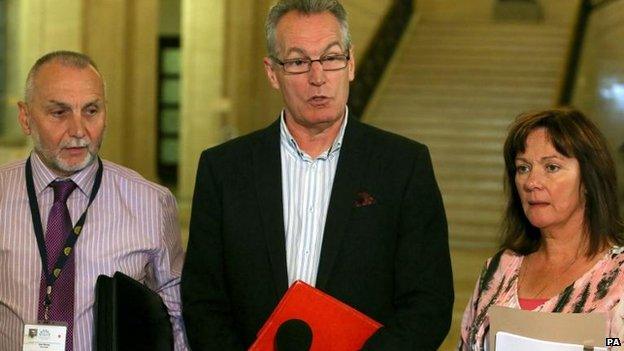
Sinn Féin's delegation Sean Murray, Gerry Kelly and Jennifer McCann spoke ahead of the meeting
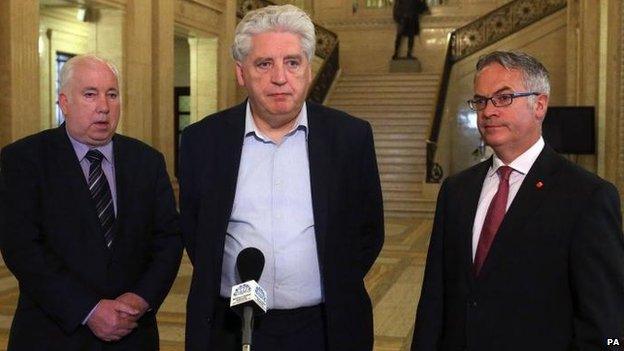
Joe Byrne, Alasdair McDonnell and Alex Attwood are representing the SDLP at the talks
At the start of the talks, the DUP was the only party not to have an elected politician in attendance, but assembly member Jonathan Bell joined special adviser Emma Little and senior Orangeman Rev Mervyn Gibson on Wednesday afternoon.
On his way in, Mr Bell suggested that the success of the talks would depend on "tolerance and respect" being shown towards Orange parades.
"We look very much towards recent issues of parading, we look at the deficit there is within nationalism - the lack of tolerance, the lack of respect, the lack of accommodation," he said.
He added that if nationalism and republicanism did not change their approach to the matter then the prospects of success in the talks were "very limited".
While politicians in Belfast discuss these issues, Northern Ireland's economy was the focus of talks in London.
The meeting between Mr Cameron and the first and deputy first ministers marked a year since Westminster and Stormont agreed an 'economic pact', a series of measures to improve the economy, including grants and borrowing.
Afterwards, First Minister Peter Robinson said the the prime minister was "absolutely clear" that there was no more room for manoeuvre on welfare reform.
Westminster is reducing the amount of money it sends to the executive because it will not agree on welfare changes. Sinn Féin is refusing to support a welfare reform bill.
"We all know that budgets will be reduced and the effect of these Sinn Féin cuts will be felt by those most in need," Mr Robinson said.
"What people want to know is whether Sinn Féin will take responsibility for the consequences of their failure to act responsibly."
However, Sinn Féin's Martin McGuinness said: "We are not in conflict with Peter Robinson and the DUP on the issue of welfare.
"We are in conflict with the British government and we said that to David Cameron during the course of the meeting."
'Useful and frank'
The prime minister has also been meeting Sinn Féin colleagues of Mr McGuinness.
While Sinn Féin politicians have met Mr Cameron before, it has been as individuals or ministers but not as part of a party delegation.
Sinn Féin president Gerry Adams said it had been a "useful and frank discussion".
"The meeting provided the Sinn Féin leadership with an opportunity to express our serious concerns to Mr Cameron at his government's disconnect from its responsibilities under the terms of the Good Friday and other agreements," he said.
"In our view the political process in the north of Ireland has deteriorated in recent months.
"Recently Mr Cameron has begun to indicate an awareness that the process is in difficulties. He did so again today.
"If he is serious about making progress then the British government has to defend the integrity of the Good Friday Agreement and engage positively with the process. This includes supporting the Haass compromise proposals and implementing outstanding issues arising from the Good Friday and other agreements."
- Published2 July 2014
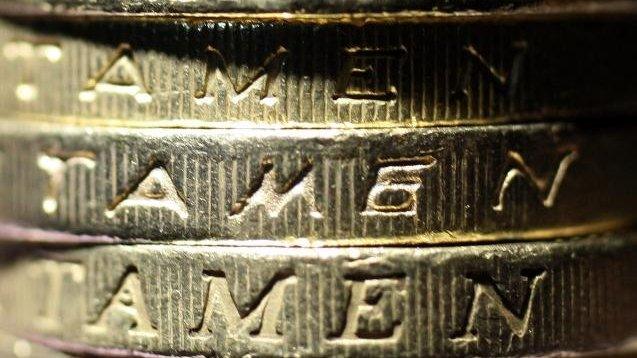
- Published12 December 2014
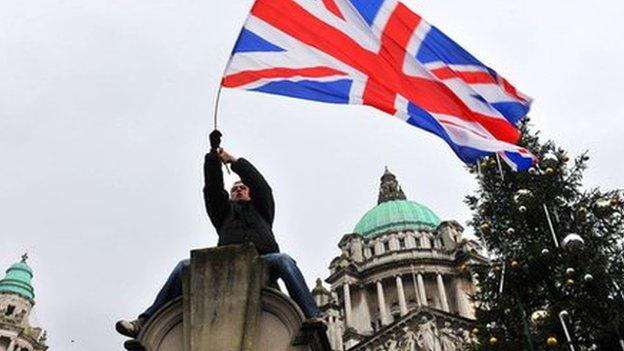
- Published24 June 2014
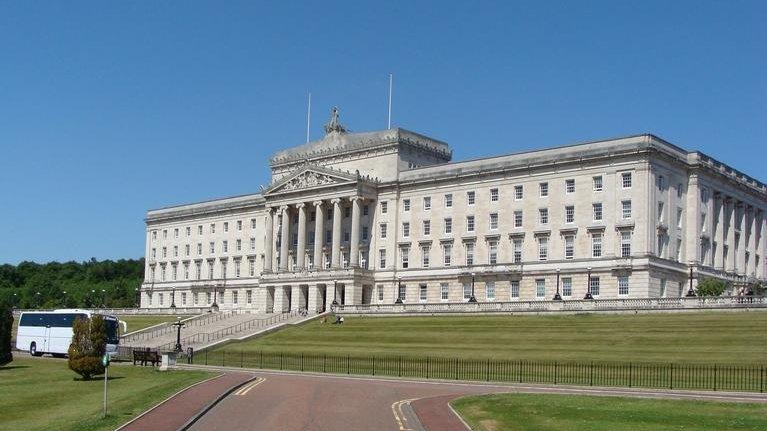
- Published29 June 2014

- Published23 June 2014
- Published23 June 2014
